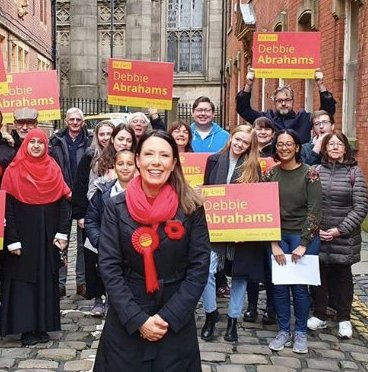

By A Special Correspondent
First publised on 2020-02-20 12:51:45
The government made a mess of handling the Debbie Abrahams issue, allowing her to escalate the matter and ensure a lot of negative publicity both for the government and the Kashmir issue. No one can dispute the fact that every country has the right to refuse entry to any person it does not want to enter its country. The visa regime has been put in place for that very reason. But there are norms and procedures that must be followed and last-minute denials smack of high-handedness. Having said that, the way Abrahams made travel plans just days after the visa was canceled also raises questions about her intentions, especially since the visa was issued in October 2019.
Abrahams had applied for a business visa (which entitled her to multiple entries into India for a period of one year) a few months back. By then, she had already been in the limelight as a vocal critic of India's Kashmir policy subsequent to the clampdown in the state and the abrogation of Article 370. Why then was her application approved? That was the biggest mistake. Abrahams should have been denied a visa to let her know that she was not welcome in India. But once her visa was approved, it was natural for her to plan a trip to the country.
What subsequently happened at Delhi airport was a textbook case of how visitors should never be treated. Since Abrahams was a member of the UK parliament, chairperson of the UK's All-Party Parliamentary Group on Kashmir and a critic of the policies of the present Indian government, extra care should have been taken in her case. She says nobody in charge could explain to her why her visa had been canceled. But was the Delhi airport the right place for asking such questions? If Abrahams had genuine concerns about the cancellation, she should have sought answers from the Indian High Commission in London after being intimated about the fact. Abrahams has denied receiving a cancellation notice before coming to India but the government has unofficially shown a letter that was sent to her.
It was clear that she was denied entry for her role in toeing the Pakistani line on Kashmir and her frequent criticism of India over human rights violations in J&K. The government has admitted that Abrahams' visa was canceled as she was involved in "anti-India activities". It was canceled three days prior to her arrival at Delhi airport. The Indian High Commission charged her of traveling to India on an invalid visa as she had prior knowledge that her visa had been canceled. Abrahams said she wanted a visa on arrival but her request was denied. She alleged that the government deported her for her criticism over policies on Kashmir.
If the government had wanted, it could have avoided the ugliness that the episode generated. It could have had a senior officer in place to explain things to her and make her leave respectfully. It also seems that Abrahams was bent on getting publicity since she traveled despite knowing her visa had been canceled. The very fact that she did not travel to India from October 2019 when her visa was approved till February 2020 when it was canceled points to mala fide intentions. She achieved her purpose of portraying the Indian government as insensitive and intolerant of criticism by coming on an invalid visa and getting deported after creating sound and fury at the airport. It is the government of India that lost face, which could have been avoided with a little more finesse and tactful handling of the issue.











